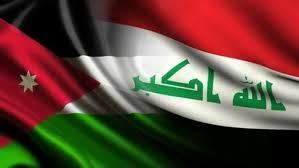12-Mar-2019

A specialized Iraqi committee recently started a visit to
the Kingdom to verify the presence of Jordanian factories exported to Iraq,
which were included in the decision to exempt from customs duties, according to
an informed source.
The source, who asked not to be named for "tomorrow”
that the committee is composed of government agencies and representatives of
the Iraqi private sector is also checking the actual production capacity of
factories, noting that the purpose of this step is to ensure the export of
products manufactured in Jordan to the Iraqi market.
The Iraqi authorities agreed to activate the decision of the
Iraqi Council of Ministers adopted in 2017 to exempt the Jordanian list of
goods from customs duties, after negotiations aimed at determining the list of
goods that do not cause harm to the industry and local Iraqi agriculture, because
the exempted goods are not produced in Iraq or the production does not cover
The need of the Iraqi market.
The decision to exempt about 344 Jordanian products from
Iraqi customs duties, which amounted to 30% according to the product out of a
list of 750 products was delivered by Jordan to Iraq in 2017.
On the same level, the same source said that the Iraqi
Commission is currently selecting a number of factories in each sector covered
by the decision of exemption, expected to finish its work on Thursday.
The source pointed to the presence of quantities of
Jordanian goods began to export to the Iraqi market without customs duties
based on the activation of the decision to exempt them from these fees by the
Iraqi authorities.
The head of the Irbid Chamber of Industry, Hani Abu Hassan,
said that the Iraqi committee is currently in Jordan to verify the Jordanian
product and verify the production capacity of the factories. Abu Hassan
stressed that the industrial sector welcomes the presence of the committee and
visits of Jordanian factories to emphasize the credibility and quality of
Jordanian products, which are manufactured within the highest specifications in
more than 130 countries.
Abu Hassan said that the Jordanian product has become a
major brand in many export markets, which increases the Jordanian
manufacturer's keenness to maintain its presence in these markets through
quality and competitive price.
Abu Hassan said the list of goods and products exempt from
Iraqi customs duties would increase the movement of national exports to the
Iraqi market during the coming period. He called for the need to include among
the committee members from the Jordanian side so as not to be a committee
unilaterally, and the facts are conveyed objectively.
The Chairman of the
Jordan Exporters Association, Eng. Omar Abu Shisha, stressed that Jordan enjoys
the existence of high quality industries and competitive prices, as evidenced
by its arrival in more than 130 countries around the world. He pointed out that
the Iraqi market is one of the promising markets to increase national
antagonisms in the coming period, especially as it accounted for more than 25%
of the total national exports.
The President of the
Assembly that the customs exemptions provided by the Iraqi authorities to
Jordan is very important and helps to increase national exports and increase
their competitiveness within this market.
He pointed out that
the industrial sector looks at Iraq as a partner in various fields in light of
the historical ties and historical relations between the two countries.
He urged Jordanian companies, whose products included the
decision to exempt from customs duties, to benefit from this decision by
intensifying contact with Iraqi merchants and seeking to conclude commercial
deals and find agents for their products.
Aaccording
to the latest official data released by the Department of Statistics, the value
of national exports to Iraq during the last year rose by 26.7% to reach 465.9
million dinars compared to 367.7 million dinars during the same period of 2017.
Jordanian exports to Iraq peaked in 2013 to reach 882
million dinars, while in 2017 fell to 367 million.
×
![]()